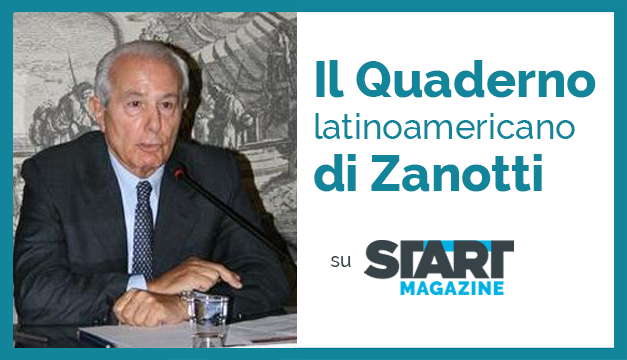Venezuela vs. Colombia: war in South America?

Between Venezuela and Colombia, besieged by their respective internal crises, the bloody border guerrillas that have been going on for weeks risk precipitating into a real war. The in-depth study by Livio Zanotti
Even more than the aerial bombardments and the continuous shootings between military units along the Arauca River that marks the southern border between the two countries, the dead, the wounded and thousands of refugees again fleeing, two data have triggered the alarm at the United Nations ( not yet – not actively – to the Organization of American States, the OAS, weakened by a management that has lost prestige and increased internal conflicts). One, immediate, is that the hypothesis of a war is by no means excluded by more than one exponent in both governments, convinced that they can find there if not the solution, at least a useful diversion from the very serious internal problems that overwhelm them. . The other, now symbolic, but always present in their respective national pride, is that almost a hundred years ago and right here the Bolivarian project of Greater Colombia was shattered.
The Union of South America longed for by the Libertador is now yellowed rhetoric in Nicolás Maduro's Venezuela reduced to a miserable simulacrum of that grandiose dream; ritually celebrated or completely denied in the subcontinent as a whole. The unsolved problems remain alive: the personal rivalries between the different caudillos, never historically extinct; as well as those today corresponding to the conflicts of interest that in the nineteenth century opposed artisans and protectionist producers to the slave owners and free traders. Its nature is reconfigured by the continuous ant-smuggling that in the periodic reversal of roles (years ago it was the Colombians who went to buy cheap products on the opposite Venezuelan shore), now sees the Venezuelans cross the muddy Arauca as they can to go and procure fuel, milk, eggs, meat on the Colombian side.
A fiercely realistic hologram retraces the current situation years back along a de facto uncontrolled frontier, uncontrollable by its extension through a nature as spectacular and fascinating as it is wild. I was able to reach the area by helicopter thanks to the courtesy of the then president of Colombia, Andrès Pastrana, who was once also a journalist (a knowledge inherited from my colleague Franco Catucci who enjoyed his absolute esteem and friendship). At that time it was also a boundary between the transcendental and the profane: the Betoyes Indians celebrated their own occult rites there; drug traffickers treated coca leaves with kerosene to produce cocaine. I waited one night with the Das patrol (the Colombian FBI) to surprise the plane they assumed was coming to pick it up.
At dawn, a sudden fire swept over the jungle. The agents were convinced that there was nothing more to wait, instead we had to get away quickly. According to their reading, the fire was caused by a guerrilla raid on the "kitchen" of the narcos. The area was infested with FARC and ENL fighters, in permanent war with the traffickers over the dispute over the copious profits of drug trafficking, which also crossed arms. Too dangerous to risk meeting one or the other along the many kilometers of walking to the clearing where the helicopter was parked, with the protection of the 5 men of our rearguard. We took a breath until we reached the river. Neither the guerrillas and even less the narcos would have exposed themselves to the open. Everyone knew that the fire had awakened the entire forest. However, without interrupting the comings and goings between the opposite shores: too many witnesses in circulation.
Always partial and precarious, therefore, peace in this tip of South America was more aspiration (when there was) than reality, on both sides of the very fragile border. The regime of Maduro and its generals has consumed its part in the tragic internal crisis of democratic legitimacy, even before economic and political legitimacy. And now he is struggling in a dead end where he accumulates privations and risks for all. On the other hand, Ivan Duque's Colombia sabotaged the disarmament of the Fuerzas Armadas Revolucionarias (FARC), painstakingly achieved by his predecessor Juan Manuel Santos after half a century of internal war, endless bereavement and immense material damage. With the result of interrupting the cycle of economic growth and igniting a protest that invades the streets of the cities, badly held back by the virulence of Covid. To such an extent that the former head of state Alvaro Uribe , Duque's political mentor, urges the army to repress it with weapons.
Millions of Venezuelans and Colombians have always lived along this border which alternately distributes their life and death, naturalizing conflicts, illegal trafficking, violence of all kinds in the existence of the day after day. Nothing stops the migratory undertow of needs and hopes, nor the incredible businesses that grow in and around it. At most, the roar of a bombing or the crackle of a machine gun suspend the intense reticule of comings and goings just long enough to locate the immediate danger to escape it. The bridge through which travelers with documents pass appears uninhabited, all ashore. The boats of illegal immigrants accelerate towards the nearest shelters. While in Bogota and Caracas, between the government buildings and the tables of the military staffs they are evaluating the profits and losses of a possible plunge into open war.
This is a machine translation from Italian language of a post published on Start Magazine at the URL https://www.startmag.it/mondo/venezuela-vs-colombia-guerra-in-sud-america/ on Tue, 04 May 2021 07:42:29 +0000.
